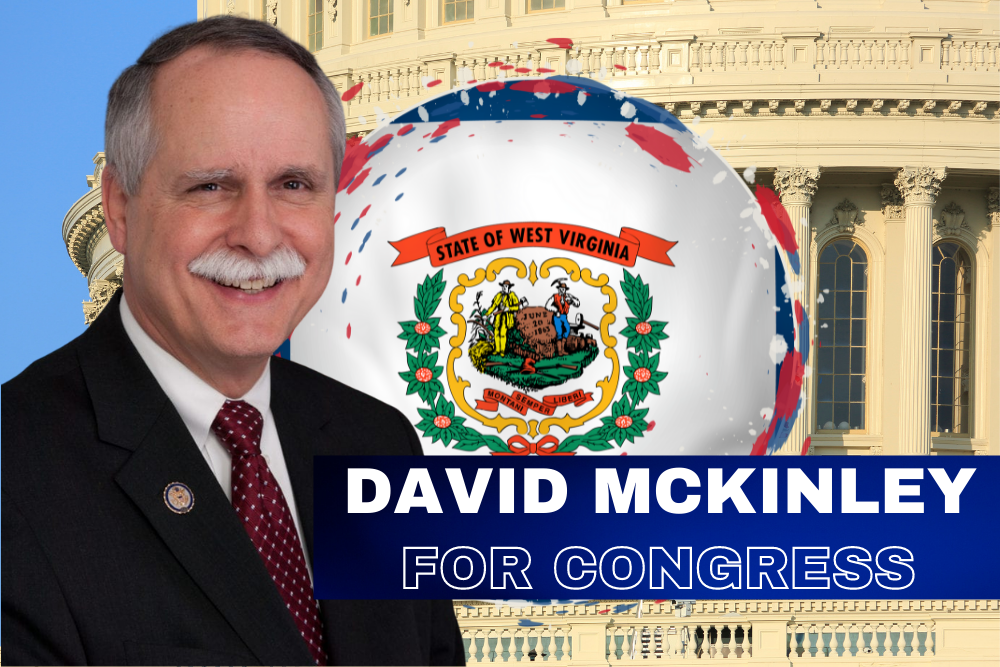McKinley defends West Virginia during hearing, Trusting the Tap: Upgrading America's Dr
Washington, D.C. — Congressman David B. McKinley (WV-01), ranking member of the Environment Subcommittee, delivered remarks during the hearing, Trusting the Tap: Upgrading America's Drinking Water Infrastructure.
View his remarks & questions here
Excerpt from West Virginia Metro News: Drinking water infrastructure improvements draw attention from Congress
Members of Congress explored what must be done to shore up America’s drinking water infrastructure, an acute issue in West Virginia where systems are ranked among the nation’s least adequate.
Congressman David McKinley noted that West Virginia’s drinking water infrastructure receives a “D” from an annual scorecard by the American Society of Civil Engineers.
The organization’s scorecard specified that some drinking water systems in West Virginia are losing more than half of their treated water throughout distribution systems. The civil engineers organization estimates cumulative funding needs for drinking water infrastructure in West Virginia amounts to about $302 million.
“These states are desperate,” McKinley, R-W.Va., said today...
Excerpts and highlights from Congressman McKinley's prepared remarks:
According to the American society of civil engineers, states like Nevada and Oregon were ranked first and second for the quality of their infrastructure.
So, it’s understandable that they had reservations about the funding in the infrastructure bill.
But what about Mississippi and West Virginia: dead last. Their drinking water alone was given a “D” these states are desperate.
Nearly everyone in congress says America needs better infrastructure, but when they were given the chance to vote for it and yet, it didn’t pass unanimously
Mr. Chairman, look, I’ve been a member of congress for nearly 12 years and this was the first opportunity we had to get a real infrastructure bill to the president’s desk.
President Obama talked about it, but it never happened. President Trump wanted to, but Pelosi wouldn’t let his bill come to the floor.
And after months of partisan bickering, I appreciate the leaderships’ decision to keep social spending, known as build back better, separate from the bill.
It’s now pure infrastructure and according to Forbes, the social spending bill is dead in the Senate.
So, when I’m back in West Virginia, I hear great things from stakeholders everywhere i go about this bill, like Marie Preziosa with the West Virginia Water Development Authority and Todd Grinsted with the West Virginia Rural Water Association.
They talk about communities like: Fairview, Aurora, Paw Paw, Wyoming and McDowell counties.
They’re struggling, Mr. Chairman, and according to the West Virginia DEP, our state has nearly 2,500 miles of contaminated streams.
So, this bipartisan infrastructure bill is a once-in-a-lifetime opportunity for these small and rural communities to get affordable and clean water.
But this committee will need to conduct rigorous oversight.
Democrats have a history of prioritizing climate change over drinking water and putting urban interests ahead of rural ones.
For example, President Obama cut funding for the state revolving funds for rural states by half.
So, this committee must be vigilant to ensure that small and rural communities are not left out again.
In addition, Subcommittee Republican Leader McKinley asked Jim McGoff, President of the Council of Infrastructure Financing Authorities, about how rural communities would be included for what counts as a “disadvantaged community.”
LEADER MCKINLEY: “States each have their own idea of what a disadvantaged community is and whether it’s urban or rural. So that both urban and rural communities are on a level playing field, how can we ensure that the population and need are part of the equal consideration as we go ahead? Need is huge for us in areas in West Virginia, Mississippi, and others that are struggling now to do this. How can we do that? How can we make sure that need is also included?”
JIM MCGOFF: “Thank you for the question. The SRF programs have been identifying and targeting disadvantaged communities for years. We are well-equipped. Each state has the ability and the flexibility to tailor their definitions of a ‘disadvantaged community’ to fit their state need. For example, in Indiana, we have both urban and very rural communities. Many of the rural communities are very much like what you described in some of the southern states and so our ‘disadvantaged community’ definition recognizes very low median household income, high user rates. We target our grant funding that we have available and our forgivable loan funding that we have available, to those communities and the communities that can afford a standard interest rate. That’s where we program those loans to.”
Related News
ICYMI - McKinley: Biden’s War on Fossil Fuels Causing Gas Prices to Spike
April 6, 2022 | Posted in Press Releases
McKinley, Cartwright Introduce Bill To Ensure Long-Term Clean Up of Streams
March 31, 2022 | Posted in Press Releases
March 30, 2022 | Posted in Press Releases
McKinley Introduces Bill to Help Police Departments Retain Experienced Officers
March 29, 2022 | Posted in Press Releases
Original source can be found here.


